There are:
6x small A4 essays to complete
5 x books on our required reading list. These are books chosen that support the Trust Technique methodology and bring extra insights to the learner experience
1x 20 min video presentation describing the Trust Technique
6 x sessions for 4 animals in each category. If completing both categories then this is 48 sessions 24 with dogs and 24 with horses. These are Gaining your own experience and are sessions with other peoples animals (not teaching the owner)
10 x consultations for each category. If completing both categories then this would be 20 sessions 10 with dogs and 10 with horses. At this point, learners are working with both the human and the animal. We require the best sessions to be videoed and submitted to us as the final assessment.

